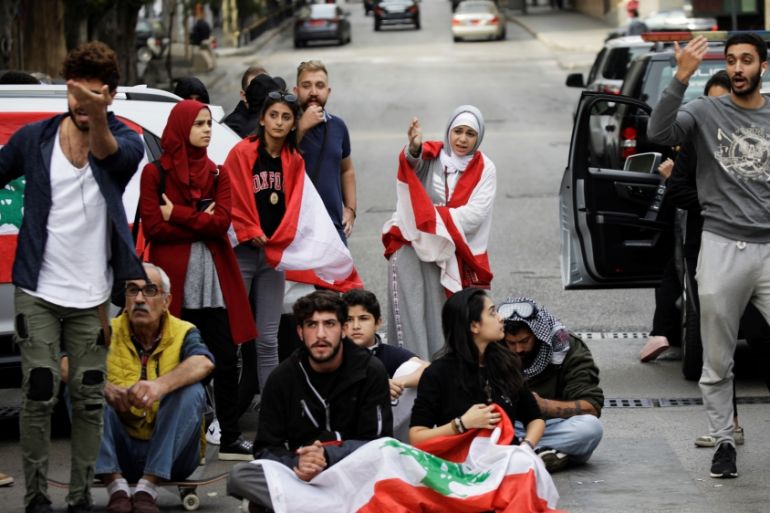Former Lebanese minister Diab set to be named PM: Sources
Hassan Diab emerged as a candidate for position after outgoing Prime Minister Saad Hariri withdrew his candidacy.

Former Minister of Education and Higher Education Hassan Diab looks set to be named Lebanon‘s new prime minister on Thursday, senior political sources have said, a move that would thrust a little-known engineer to the forefront of efforts to tackle an acute economic crisis.
President Michel Aoun will hold formal consultations with Lebanon’s 128 legislators on their choice for prime minister throughout the day and must designate the candidate with the greatest support.
Keep reading
list of 3 itemsAngry confrontations in Lebanon before parliament sitting
Lebanon needs to free its economy from international lenders
Reuters News Agency reported that Diab emerged as a candidate for the position at the last minute when outgoing Prime Minister Saad Hariri withdrew his candidacy for a job that must be filled by a Sunni Muslim in Lebanon’s sectarian system.
Hariri said on Wednesday he would still participate in the process of selecting a new prime minister so there were no further delays in the process.
As things stood on Thursday morning, Shia groups Hezbollah and Amal, in addition to Hezbollah’s biggest Christian ally, the Free Patriotic Movement (FPM), will all nominate Diab, three senior sources familiar with each group’s position said.
With Iran-backed Hezbollah and its political allies holding more than 70 of the seats in Parliament, Diab should emerge with the largest amount of support.
Hariri, who is aligned with Western and Gulf Arab states, resigned on October 29, prompted by protests against a ruling elite accused of overseeing rampant state corruption.
Any prime minister must be approved by the majority of the 128-member legislature.
The anticipated announcement comes as tensions between protesters, security forces and supporters of some establishment parties have started to rise, more than 60 days after the uprising began.
Protesters have taken to the streets to call for the removal of the entire ruling class, who they accuse of causing an economic and financial crisis in the country. Their main demands, which include the formation of an independent government of specialists to lead the country out of the crisis, as well as early elections, have not been met.
‘Investigate violence’
The authorities in Lebanon must launch an independent into last Saturday’s violent crackdown on “largely peaceful protesters”, said Amnesty International on Thursday.
“Since the beginning of the protests almost two months ago, security forces have resorted to unnecessary and excessive force against peaceful protesters on a number of occasions. But the unprovoked crackdown we witnessed on Saturday is by far the most virulent we have seen so far,” said Lynn Maalouf, Amnesty’s Middle East director of research, in a statment.
About 25 people were wounded on Saturday, most by beatings from security forces and “relentlessly” fired tear gas canisters.
|
|